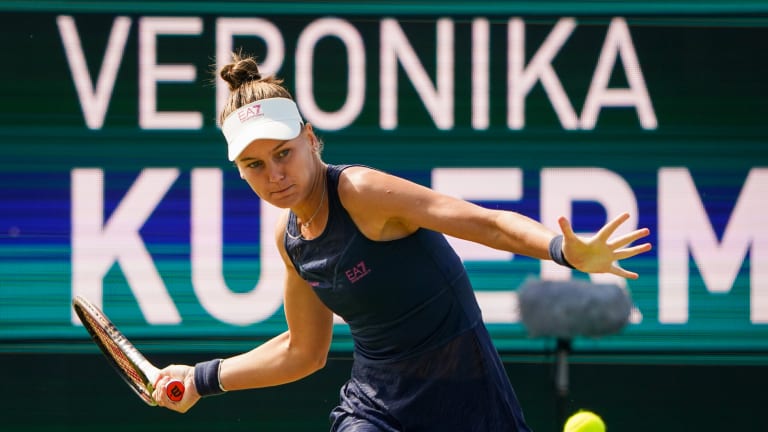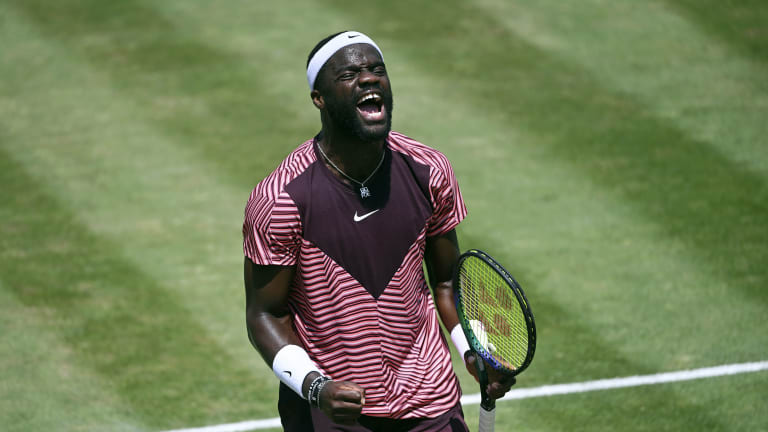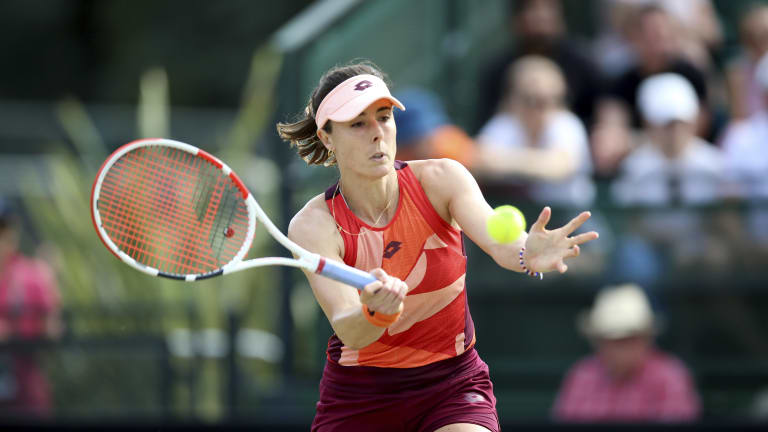S-Hertogenbosch, Netherlands
Setting Up Sunday: With grass season just launched, contenders seek early victories
By Jun 17, 2023S-Hertogenbosch, Netherlands
Liudmila Samsonova dashes Bianca Andreescu's birthday title hopes in Den Bosch
By Jun 16, 2024S-Hertogenbosch, Netherlands
Alex de Minaur races to second title of 2024 in 's-Hertogenbosch, set to hit career-high ranking
By Jun 16, 2024S-Hertogenbosch, Netherlands
Bianca Andreescu sets "birthday final" in Den Bosch, awaits Samsonova or Alexandrova
By Jun 16, 2024S-Hertogenbosch, Netherlands
Sebastian Korda sinks reigning Den Bosch champ Tallon Griekspoor for first grass final
By Jun 15, 2024S-Hertogenbosch, Netherlands
Bianca Andreescu wins blockbuster tussle with Naomi Osaka in ‘s-Hertogenbosch
By Jun 14, 2024S-Hertogenbosch, Netherlands
Bianca Andreescu and Naomi Osaka will go head-to-head for the first time in five years ... on grass
By Jun 12, 2024S-Hertogenbosch, Netherlands
Den Bosch: Jessica Pegula victorious in return, Naomi Osaka wins first grass match since 2019
By Jun 11, 2024S-Hertogenbosch, Netherlands
Ekaterina Alexandrova defends Libema Open title in marathon final
By Jun 18, 2023S-Hertogenbosch, Netherlands
Alexandrova, Kudermetova to meet in all-Russian women's Den Bosch final
By Jun 17, 2023Setting Up Sunday: With grass season just launched, contenders seek early victories
A quartet of finalists at ATP and WTA 250 events are making a case for why their names should be underlined as ones to watch at Wimbledon.
Published Jun 17, 2023
Advertising
Advertising

World No. 14 Veronika Kudermetova has the power, versatility, and mobility to become a factor on grass.
© Getty Images
Advertising

At the BOSS Open in Stuttgart, No. 12-ranked Frances Tiafoe has reached his first grass-court singles final.
© DPA/AP
Advertising

Though Alize Cornet is not playing a final this Sunday, what she accomplished in Nottingham commands attention.
© AP